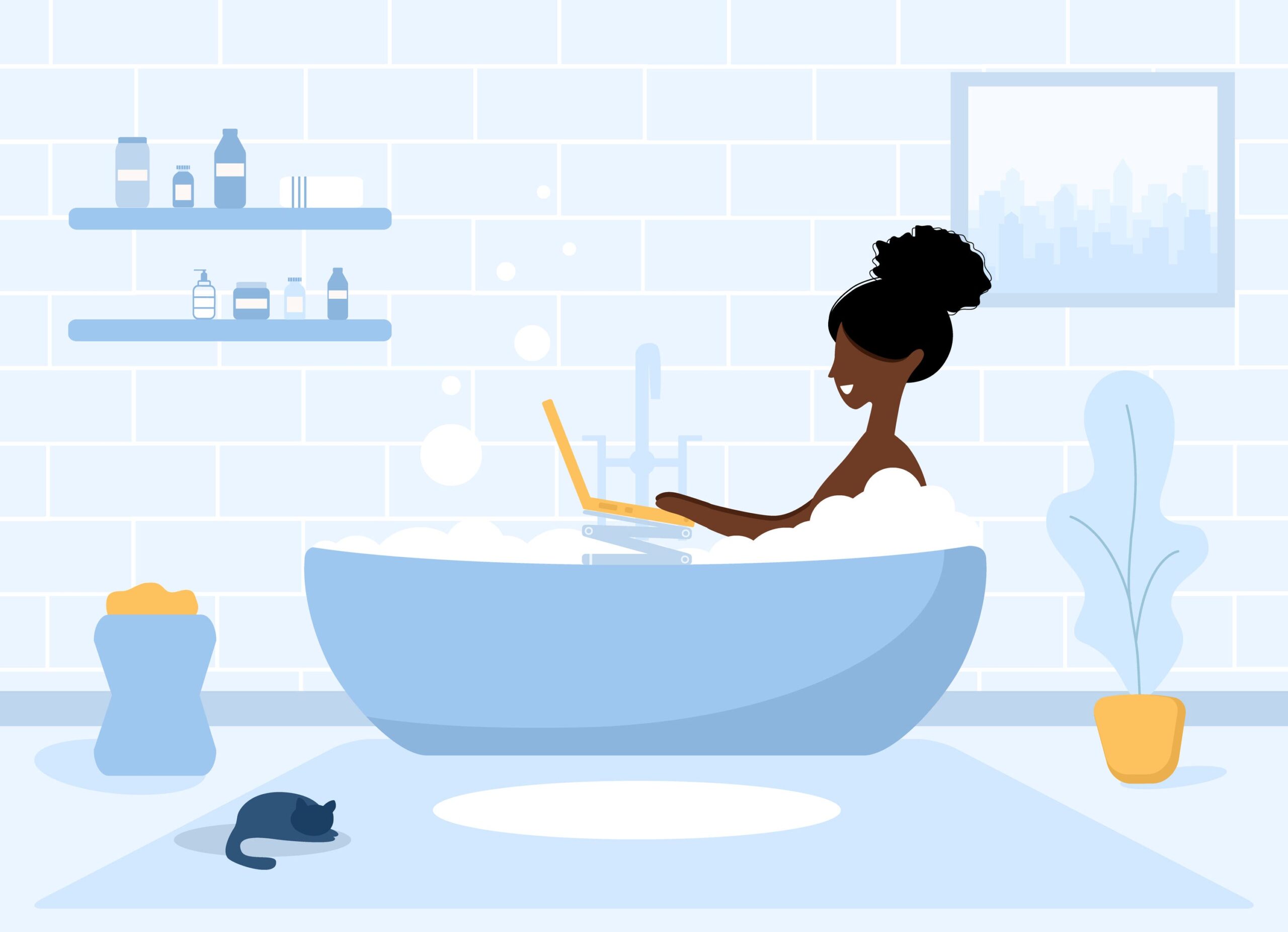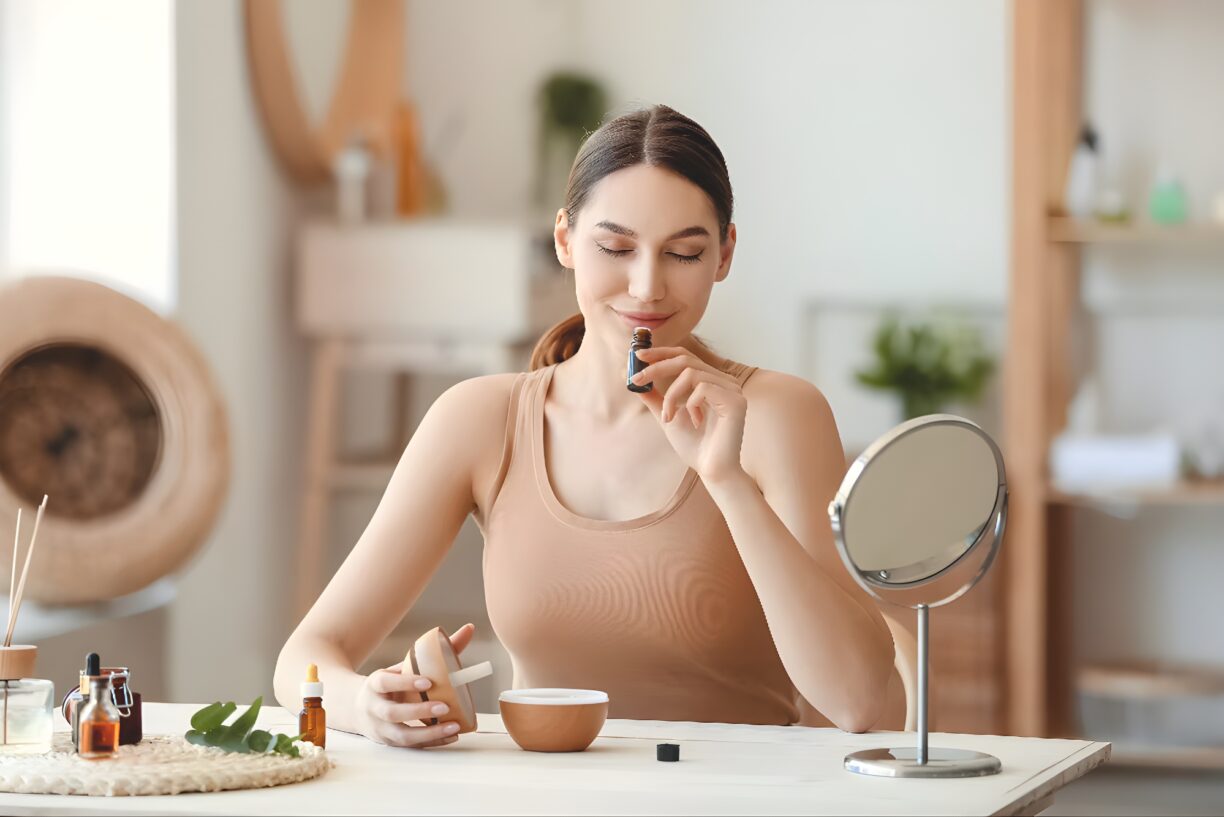Are baths a prime part of your self-care routine right now? Nothing beats a long, relaxing soak – and this year, with stress levels spiking and nights out off the cards, our tubs can seem more appealing than ever. But could too many hot baths be leaving your vagina and vulva a bit unhappy?
“Hot baths are notorious for causing dry and dehydrated skin, and this is no different for the fine, sensitive skin in the vaginal/vulval area,” says pharmacist Gemma Fromage (yourskinhealth.co.uk).

“Although bubble baths may feel nice at the time, any sort of soap, fragrance or oils added to the bath can cause irritation and disrupt the balance of microorganisms that keep the vagina healthy.”
A fine balance
Bottom line, your privates don’t really want to be over-cleaned, and they certainly don’t want to be invaded with a load of soapy, perfumed products.
“Although it might sound counterintuitive, washing and bathing too much can actually be bad for the vagina and vulva,” says Dr Shirin Lakhani, cosmetic doctor and intimate health expert (elite-aesthetics.co.uk).
She points out that the vagina (that’s the inside bit – the skin around the outside is the vulva) “does not need cleaning” and doing so can upset its natural pH balance.
“By altering this natural balance, bacteria can grow making you more prone to infections such as bacterial vaginosis.
Water or steam or any other liquids should not be put into the vagina, and by doing so, you can not only disrupt the natural pH levels but also risk damaging the natural lubrication the body creates there,” Lakhani adds.
Indeed, the vagina is designed to be self-cleaning. “The glands inside secrete fluids which help flush out old cells daily and keep the vagina clean.
This process works in harmony with the microorganisms present, and so specific or aggressive cleaning of the area (including douches, powders, deodorisers and wipes) is unnecessary, especially with products that contain fragrances or dyes,” explains Fromage.
What symptoms could you experience?
Your skin might just feel a bit irritated and uncomfortably dry, or some might notice slightly worse reactions.
Typical things, says Dr Lakhani, might be “itching of the vagina and vulva, as well as inflammation. And if the change in pH balance results in an infection, then abnormal discharge can also be caused.
Sometimes these can be caused by the bathwater being too hot and damaging the sensitive skin down there, other times bath products can irritate the sensitive skin and affect the delicate balance of bacteria, resulting in an infection,” she adds.
What should you do about it?
Lay off the baths until things feel back to normal. If there’s any possibility of infection or the skin is sore and broken, avoiding sex is advisable too, and only clean the outside of your vulva with water.
Wearing loose, breathable clothing may also help. However, always check with a pharmacist and/or your GP before using any creams, oils or medicated products on your intimate skin.

“If it was simply a case of sensitive skin and a mild reaction, the symptoms should reduce or clear up in a matter of hours and would usually just be a bit of redness and irritation,” says Dr Lakhani.
“However, if you experience symptoms such as itching, inflammation, broken skin, bleeding and abnormal discharge for a prolonged period, I would look to see a qualified medical practitioner in order to rule out an infection such as bacterial vaginosis or a condition such as eczema or dermatitis, which may need prescribed cream or medication.”
You won’t necessarily need to give up those relaxing baths altogether – but if you are experiencing bothersome symptoms, perhaps try limiting them for a while to see if it helps.
Avoid having the water too hot and be mindful of the products you’re using too. You might want to banish using tons of bubble bath and bath bombs filled with artificial fragrance.
You could try using products specially designed for sensitive, reactive skin – plus you can up the self-care factor with a drop or two of essential oil and some scented candles instead.
Could there be something else going on?
It’s worth remembering that many of these symptoms could potentially be linked to other causes too, such as sexually transmitted infections.
So even if you have been overdoing it with the bubbles and bath bombs, if symptoms persist or keep coming back, get things checked.
You can speak to your GP or book straight into a local sexual health clinic. They’ll be able to run tests for any possible infections and advise on managing symptoms, as well as issuing prescriptions if required.
“I would suggest seeking medical help if symptoms cause discomfort, pain, irritation or affect your sex life, or go on for more than a couple of days.
Any abnormal discharge or vaginal bleeding should be investigated,” says Dr Lakhani.





